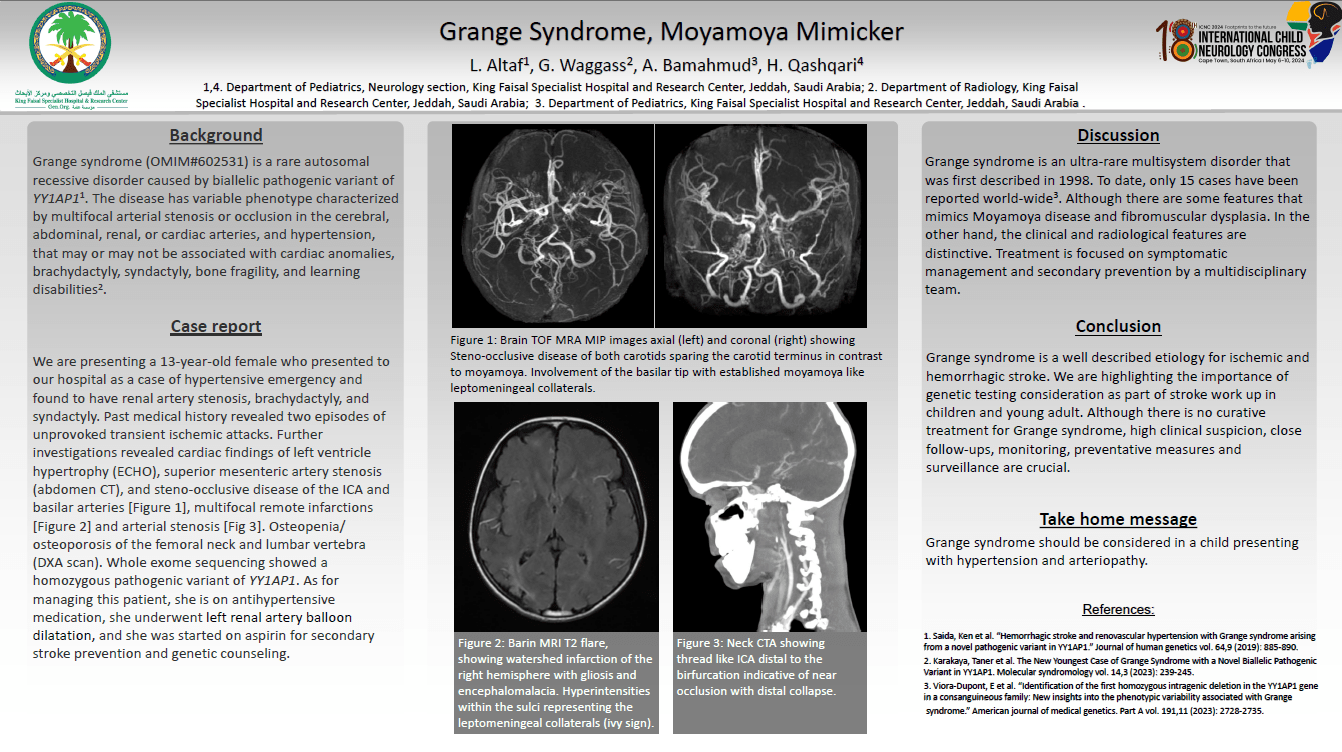Grange Syndrome, Moyamoya Mimicker
Introduction: Grange syndrome (OMIM#602531) is a rare autosomal recessive disorder caused by biallelic pathogenic variant of YY1AP1. The disease has variable phenotype characterized by multifocal arterial stenosis or occlusion in the cerebral, abdominal, renal, or cardiac arteries, and hypertension, that may or may not be associated with cardiac anomalies, brachydactyly, syndactyly, bone fragility, and learning disabilities. Case report: We are presenting a 13-year-old female who was found to have renal artery stenosis, hypertension, brachydactyly, and syndactyly. Past medical history revealed two episodes of unprovoked transient ischemic attacks. Further investigations revealed cardiac findings of left ventricle hypertrophy (ECHO), superior mesenteric artery stenosis (abdomen CT), multifocal old infarctions (brain MRI) and steno-occlusive disease of the ICA and basilar arteries (brain CT/A) –[Figure 1]. Whole exome sequencing (WES) showed a homozygous pathogenic variant of YY1AP1 gene. As for managing this patient, she has underwent 2 angioplasties, and is on antihypertensive medication and aspirin for secondary stroke prevention. Discussion: Grange syndrome is an ultra-rare multisystem disorder that was first described in 1998. To date, only 15 cases have been reported world-wide. Treatment is focused on symptomatic management and secondary prevention, applied by a multidisciplinary team. Conclusion: Grange syndrome is a well described etiology for ischemic and hemorrhagic stroke in children. We are highlighting the importance of genetic testing consideration as part of stroke work up in children and young adult. Although there is no curative treatment for Grange syndrome, high clinical suspicion, close follow-ups, monitoring, and preventative measures are crucial.
Lina Altaf
King Faisal Specialist Hospital and Research Center
Saudi Arabia
Hebah Qashqari
King Faisal Specialist Hospital and Research Center
Saudi Arabia
Ghouth Waggass
King Faisal Specialist Hospital and Research Center
Saudi Arabia

Lina Altaf
King Faisal Specialist Hospital and Research Center
Saudi Arabia